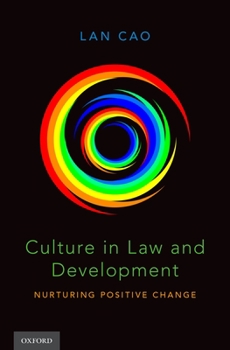Culture in Law and Development: Nurturing Positive Change
The growth of international law in the post-World War II era stemmed partly from the belief that universal norms would make life for the entire world's population safer, more equitable, and more conducive to each person's acquisition of basic material needs. Starting in the sixties and
seventies, some scholars and activists challenged this assumption and established the school of cultural relativism, a model that pays deference to local cultural...
Format:Hardcover
Language:English
ISBN:0199915237
ISBN13:9780199915231
Release Date:May 2016
Publisher:Oxford University Press
Length:546 Pages
Weight:1.80 lbs.
Dimensions:1.4" x 6.1" x 9.4"
Related Subjects
LawCustomer Reviews
0 rating





